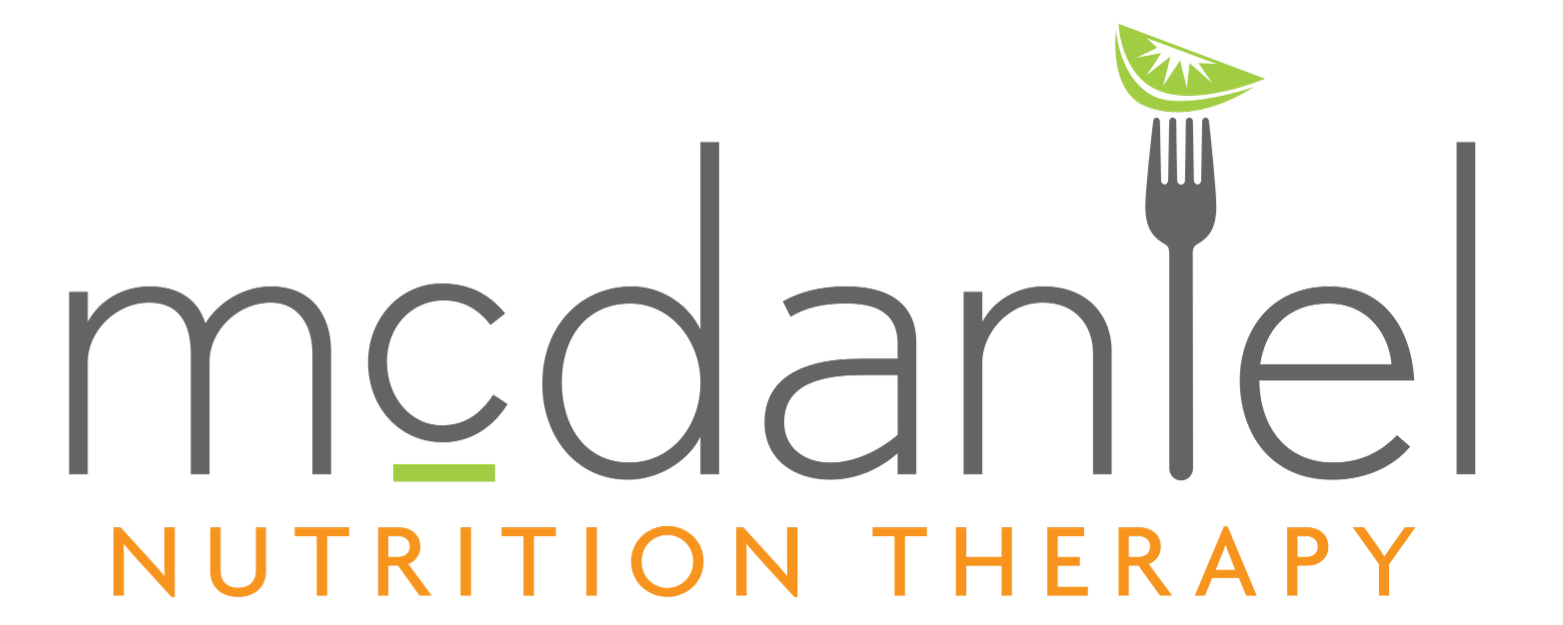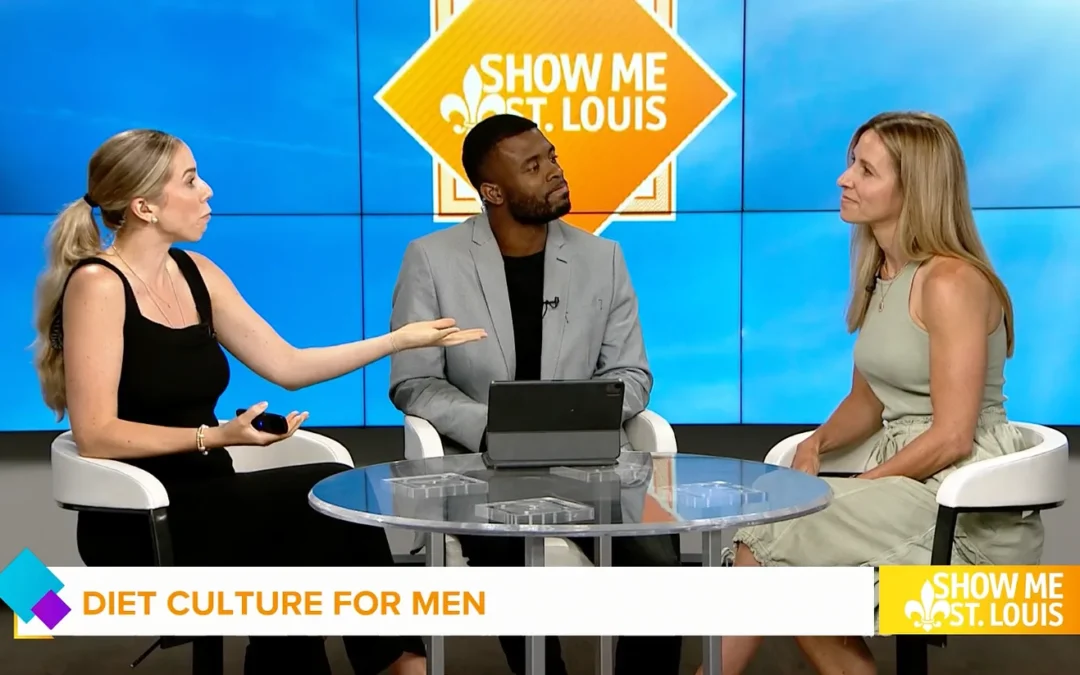I recently had the pleasure of interviewing someone whose work I’ve long admired on social media: Oona Hanson. She specializes in addressing diet culture and eating disorders, two topics that are so important—and often challenging—to discuss.
In this post, I’m highlighting two of my favorite parts of our conversation—what I believe are the essential nuts and bolts for parents:
- How to talk to kids about body image, and
- How to support them if a health professional says something needs to be “fixed.”
You can listen to the full podcast episode here.
I also brought this conversation—focused specifically on boys—to Show Me St. Louis this week.
I’m making this Substack post free because I truly believe this is a message every parent deserves to hear.
Q1: Today we’re going to focus our conversation on boys, but this question really applies to all kids, especially when it comes to body image. It’s such a vulnerable and fragile topic for parents to navigate.
So I’m wondering: how do you guide parents through these conversations?
Well, I want to start by sending a lot of compassion to parents, because many of us didn’t have this role modeled for us when we were kids. If we struggled with body image, we may not have even expressed it to our parents. And if we did, we might have heard things like:
“Oh, honey, you’re beautiful.”
“Or, you know, that’s, you know, that’s so vain.” Or the other one is:
“Oh, everyone else is so worried about how they look. No one’s even going to notice.”
There are so many phrases we’ve picked up—passed down from our parents, who heard them growing up too. So it makes sense that, as parents, we might not always know what to say.
It’s not that there’s one perfect or “right” thing to say, and it’s not always clear what’s best in the moment. But I do think there are a few things parents can reflect on that can really help.
This might hit hard if you’ve struggled with body image and hoped your kids wouldn’t face the same battle.
You might think, But I’ve been doing all this work.
- I don’t disparage my body.
- I put on the swimsuit and go to the pool with my kids.
- I offer a variety of foods.
- I don’t make fat jokes.
A lot of us, I think, make a lot of conscious choices to try to protect our kids’ body image. And it’s not usually enough because the culture is going to send them these messages that make them question themselves.
So I think the first thing that parents can think about is just really listening and sitting with our kids.
I think it’s tempting to want to rush in and fix it. And by fixing it, I mean—you might kind of diminish their concerns. You might give them a compliment. Or some parents, well-meaningly, might say:
“Well, why don’t you come to the gym with me?”
“Or why don’t we try to eat healthier, right?”
So there are a couple of ways that parents think they’re helping—or fixing the supposed problem—that can actually undermine a child’s body image and even their connection with us.
A child who’s coming to you with these concerns is already showing that you have a strong relationship—they feel safe coming to you. And we want them to keep feeling safe coming to us.
So if we have a complete meltdown, or shut down the conversation, or react in whatever way our natural instinct might be—that could send the message that we can’t handle these hard conversations.
And if you’re listening to this and thinking, “Oh no! I didn’t handle that well…”—it’s okay. We can always go back and make a repair, right? Whether it was last week or last year, you can go back to your kid and say:
“You know, you came to me with that question about how you were feeling about going to that pool party.”
Or going to prom or how your bat mitzvah dress fits, or whatever the sort of incident or issue, like ballet class, the soccer team tryouts, whatever it was that kind of triggered this body concern, we can always go back and reference that and say:
“Hey, I think I reacted in a way that probably wasn’t very helpful. Do you want to talk about that more? I’m here to listen now.”
So yes, you can always go back and make a repair.
And if you’re thinking, “Okay, this hasn’t happened yet, but I want to be ready,” I think the biggest thing is to listen—and ask your kids to tell you more.
That also buys you a little time, right?
“You can be like, oh, like, what do you mean by that? Or what made you think of that? Or, you know, tell me more. I want to understand how you’re feeling.”
So really leaning in—rather than trying to shut down the discomfort—shows our kids that discomfort is tolerable. It’s tolerable for them, and it’s tolerable for us.
And this is really hard, right? The whole concept of distress tolerance… it’s tough. Really, really tough.
If we want to protect our kids’ body image and their relationship with food, we can’t encourage restriction or over-exercising.
Even parents who are thinking, “But my child is being bullied about their size,”—whether they’re seen as too small, or too big, or whatever—can unintentionally end up siding with the bully.
If we say, “Okay, well, let’s change your body,” we’re reinforcing the idea that the bully is right—that there’s something wrong or problematic about our child’s body.
So I really want to caution parents against thinking, “Well, I’ll just have my kid start working out more,” or “I’ll give them different kinds of food.”
Again, that reinforces the idea that our child’s body is a problem. We can unwittingly participate in the same kind of body shaming that the bully—or whoever is giving our kids those messages—is doing.
And again, it makes so much sense if you’ve responded this way, because our culture has told us: “Oh, you don’t like your body? Then change your body.”
But with our kids, we really want to send the message: Your body isn’t the problem. The culture is the problem.
Not everyone knows that bodies come in all sizes.
And I’m here to support you, because this is hard—especially when you feel like you don’t fit in.
We’re going to keep talking about this.
So you’re not closing the door on the conversation either.
Q2: Right. I really appreciate what you said about building resilience around the discomfort of these feelings. I think that’s such a foundational piece—honestly, it’s everything.
There are so many ways we try to escape discomfort—but there’s also so much beauty and growth in helping ourselves and our kids learn to tolerate the feelings and energies moving through us.
So I really appreciate you bringing that up. And you’re right—it starts with us, learning to sit with the discomfort of watching our kids struggle without immediately rushing to fix it. Thank you for that reminder.
Now, I want to bring up something I often hear from parents in my work as a dietitian. When we start to shift the conversation away from “the body is the problem” and toward “the culture is the problem,” I sometimes get pushback—
Something like:
“Yes, but his physician said his A1C is elevated…”
Or: “Her cholesterol is high…”
Or: “They’ve fallen off their growth curve.”
In other words, they’re receiving messages from healthcare providers that something is physiologically wrong with their child’s body—and that it needs to be fixed.
How do you help parents hold space for that kind of feedback while still protecting their child’s body image and sense of self?
Yeah, I mean—it’s really tricky. Because you can be the most body-positive person in the world, and the minute a doctor says there’s some kind of medical issue with your child, you’re like, “Wait—I can’t hold both of these at the same time.”
And I think… I think it’s a false choice.
In the sense that being anti-diet, or body positive, or whatever phrase resonates with you—it’s not anti-health.
We can support our kids’ health and well-being without reinforcing diet culture.
We know, given the rates of eating disorders and disordered eating—and what can happen when kids start restricting food or over-exercising—that those efforts to “fix” can actually lead them down a really unhealthy path.
Eating disorders are so common right now. And after opioid addiction, they’re the most fatal mental illness.
And this is happening to both boys and girls.
So while we’re being told there’s this future risk of a certain health issue, there’s also an immediate health risk—things like eating disorders.
That doesn’t mean we don’t care about blood sugar, or whether kids are getting enough physical activity. Of course we care.
But we can still care about those things without sending our child down a restrictive path.
There’s a Substack author, Zoe Bisbing—Body Positive Home—who just wrote a great piece about how to respond to a scary medical situation, like a lab result.
I’d really refer people to that. She breaks down how to support a child who’s navigating a health red flag that the pediatrician has caught.
It’s a really good resource.

